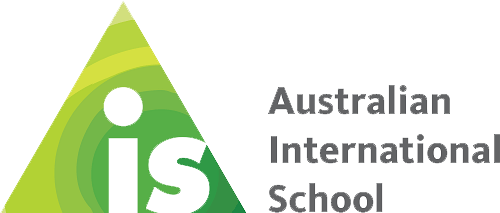3 Ways Singapore is Testing AI in Education & Schools
In today’s digital landscape, artificial intelligence is everywhere and is here to stay. From the way we consume social media to even how we shop online, it’s rapidly becoming integrated into our daily lives.
One area where AI is slowly yet surely becoming more prevalent is in our education system, particularly in Singapore.
Known for having one of the most advanced academic frameworks in the world and for their commitment to quality education, it was only a matter of time before AI was integrated into Singapore’s education system.
While this approach may pose several unique challenges, it brings a plethora of opportunities that can benefit a great number of people from students, to educators, and beyond.
Take a look at some of the ways Artificial Intelligence is integrated across the education system in Singapore.
How Singapore Is Testing Artificial Intelligence In Schools
1. AI-Powered Personalised Learning Platforms In MOE

Personalised learning is one of the greatest benefits AI has brought to education systems in Singapore and around the world.
For starters, the Ministry of Education (MOE) introduced the EdTech Masterplan in September 2023, which aims to provide a more individualised approach to learning, tailored towards the specific strengths and weaknesses of the individual.
This initiative is slowly taking off and has been progressively being implemented across schools in the country until it is fully adopted in 2030.
Since the programme rollout, five AI-powered learning tools have been implemented. Three of these are marking systems that provide real-time feedback to students, a learning system that allows students to progress at their own level and pace, and an assistive tool that helps educators develop their lesson plans.
When a traditional approach to learning is adopted, where a general curriculum is taught to students, there’s a possibility that it may not work for everyone.
Using AI tools to analyse students’ progress and provide them with real-time feedback allows for adjustments to be made and tailored learning pathways to be developed.
Ultimately, this eliminates the rigidity in learning and provides opportunities for flexibility, making learning more fun and motivating for students.
Always remember that learning is not linear and students should be allowed to learn at their own pace.
2. AI for Predictive Analysis and Early Intervention

Singapore has always prioritised and championed early intervention and special needs education, which can be seen in initiatives such as the Early Intervention Programme for Infants and Children (EIPIC).
To take their commitment to the cause even further, they are now using AI for predictive analysis and early intervention with at-risk students. Predictive analytics can be seen as the use of data, machine learning techniques, and statistical algorithms to predict future results based on past data.
With that, it will now be possible to identify students with learning barriers and additional needs much earlier to provide them with timely support and intervention through their educational journey and formative years.
Parents and teachers alike no longer have to exclusively rely on spotting developmental milestones, or the lack thereof, to determine whether a child will eventually need early intervention and special needs assistance in the long run.
3. AI-Assisted Administrative and Instructional Support for Teachers

While the benefits of AI for students are apparent, it can also benefit teachers greatly.
For instance, the integration of AI can help streamline a wide range of administrative tasks and general processes within educational institutions in areas such as grading, resource management and scheduling systems for the allocation of classes.
Instead of working for hours on end grading papers manually and one-by-one, AI can help reduce mistakes caused by human error. Instead of having to come up with lesson plans from scratch, AI can be used to draft curriculum plans based on past data from students’ learning progress.
Ultimately, AI can effectively increase efficiency across departments and reduce workloads significantly.
The use of AI would also minimise human error and speed up processes compared to solely relying on human labour alone. At the same time, it allows for unbiased and objective selection of candidates in the admissions process, which is a system that is already in place at the National University of Singapore (NUS) admissions department.
Beyond administrative tasks and general operations, AI can also provide instructional support for teachers in addressing learning gaps or challenges faced by their students.
This enables educators to dedicate more time and effort to engaging with their students directly and implementing effective teaching strategies.
Entrust your child’s education to the right hands
Especially across global education systems, the development of artificial intelligence can be daunting for parents who are still navigating and trying to make sense of the rapid digitisation all around us.
However, parents can rest assured that Singapore’s education system will use AI to continue evolving with the times and maintaining its high standards and quality of education.
Here at AIS, we can guarantee the same. Whether it’s at the preschool, primary, or pre-university level, we are committed to our students’ success and ensuring they receive the best international school education possible.
Simply book a tour with us to learn more about AIS and how to kickstart your child’s path to success.






